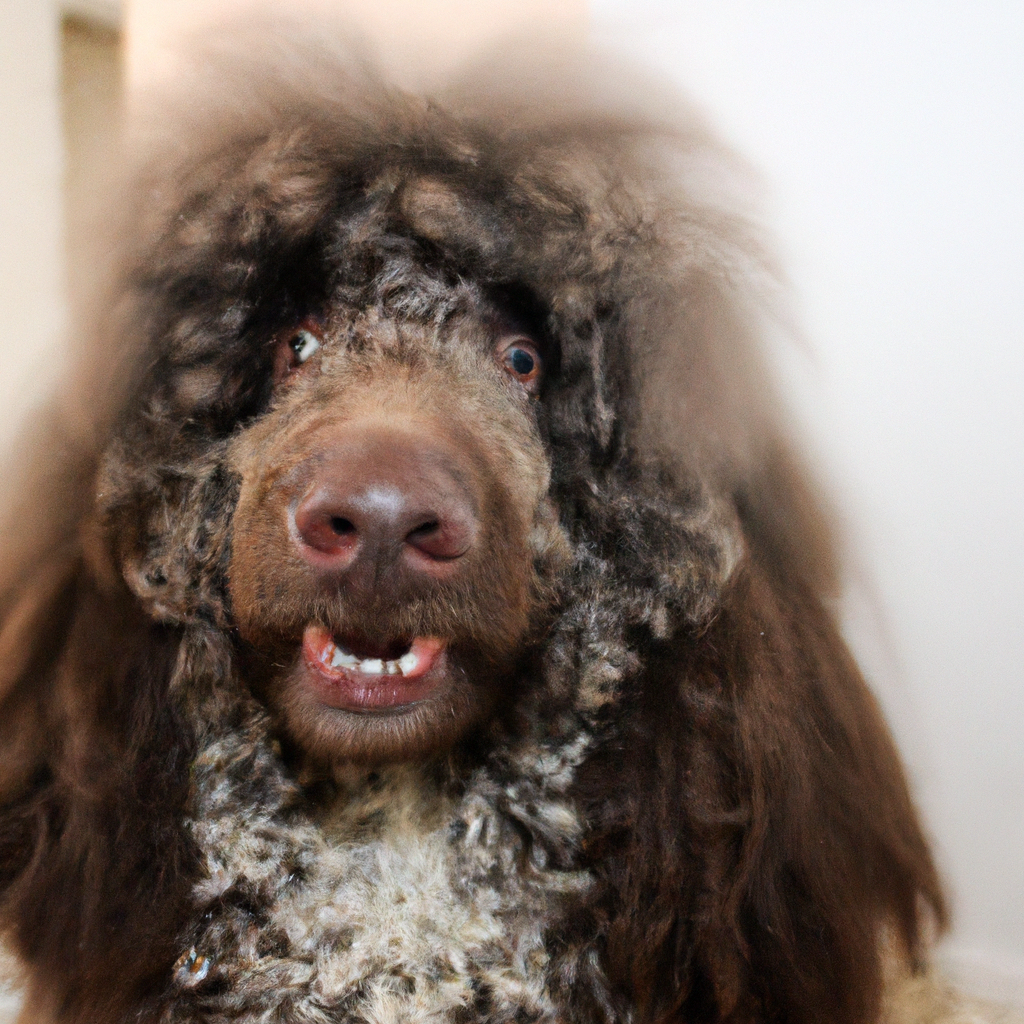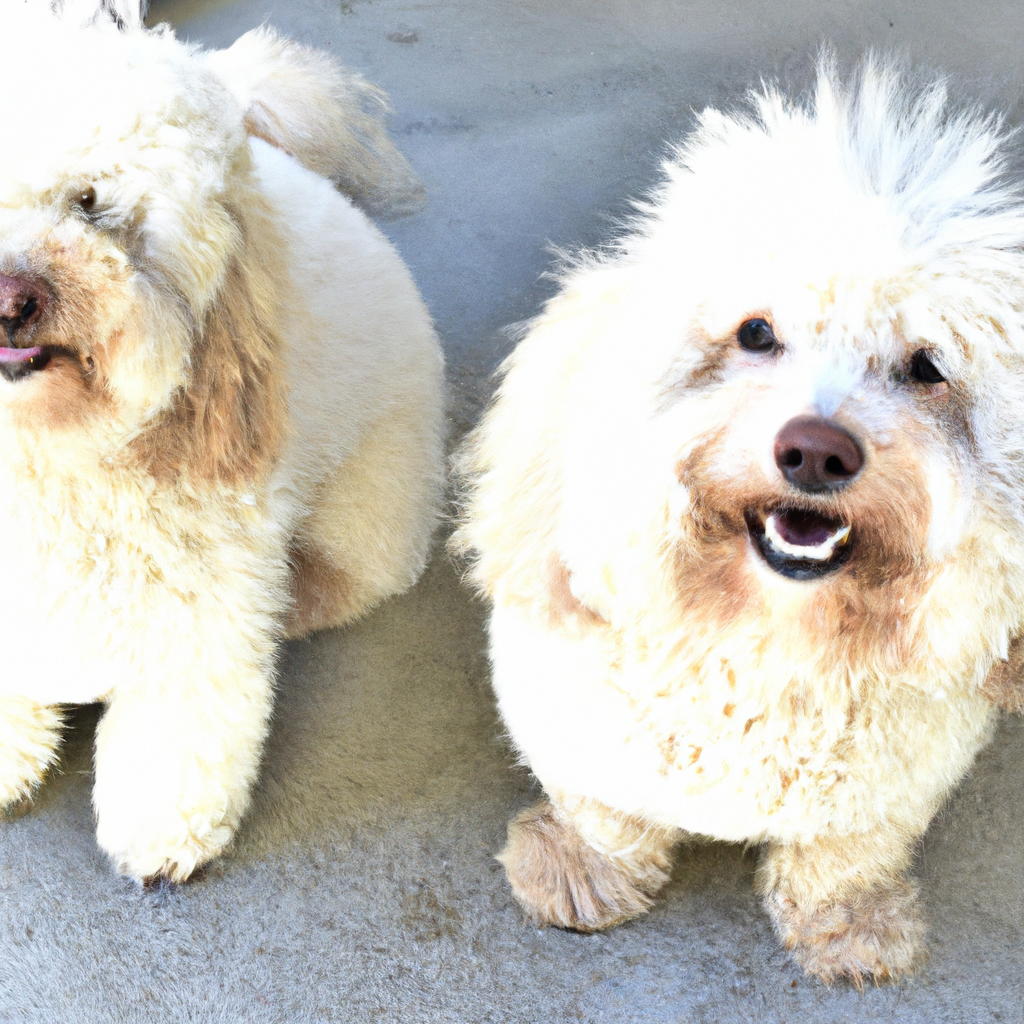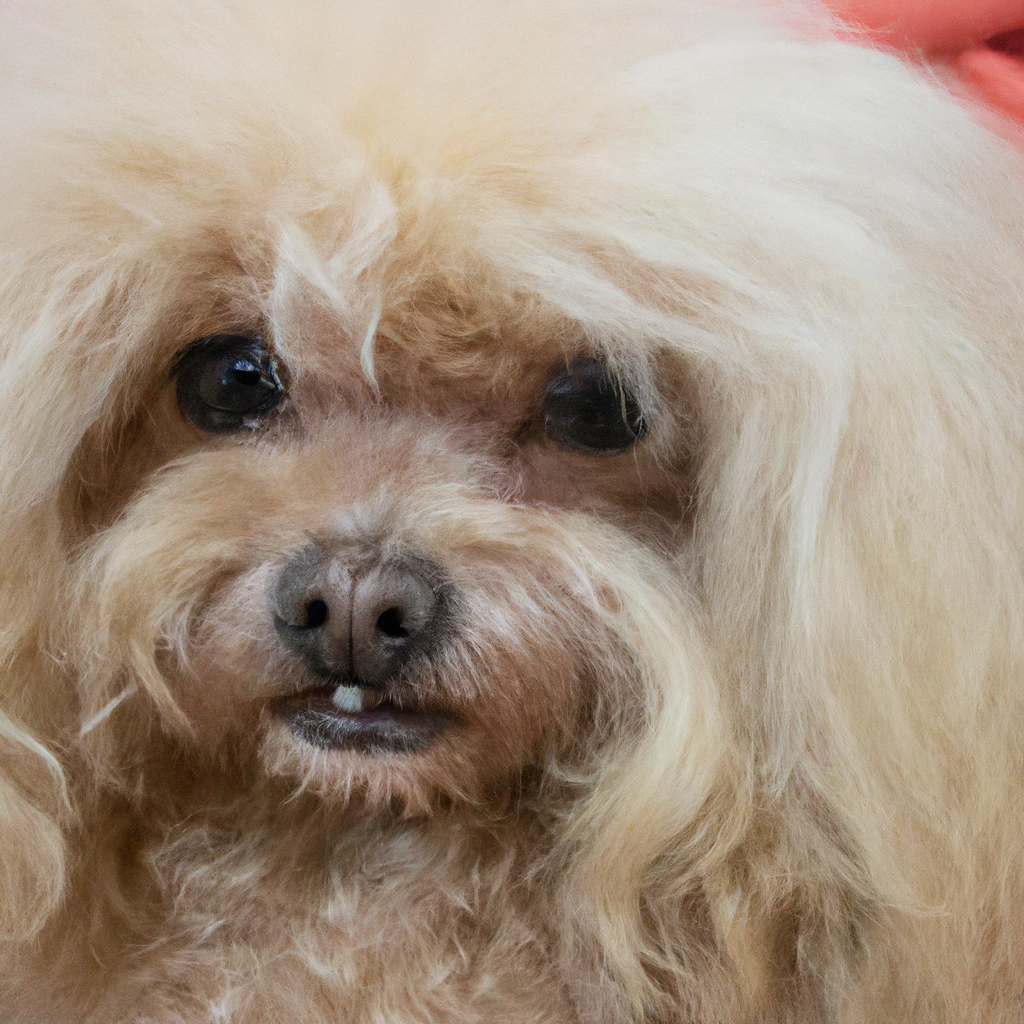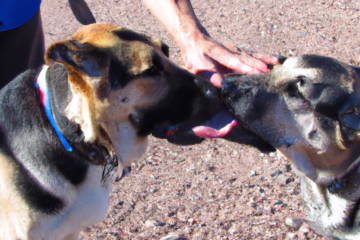Are you a dog lover with allergies? Look no further than hypoallergenic dog breeders in California! These specialized breeders offer a variety of dog breeds that are less likely to trigger allergic reactions in sensitive individuals. From poodles to terriers, there are plenty of hypoallergenic options to choose from. By exploring hypoallergenic dog breeders in California, you can find the perfect furry companion that won’t leave you sneezing and itching. Say goodbye to allergy symptoms and hello to a new four-legged friend by discovering the world of hypoallergenic dog breeders in the Golden State!
Understanding Hypoallergenic Dog Breeds

What Makes a Dog Hypoallergenic?
When considering hypoallergenic dog breeds, it is essential to understand the specific characteristics that contribute to their designation. These breeds are sought after by individuals with allergies because they produce fewer allergens, making them more compatible with allergy sufferers. The following factors contribute to what makes a dog hypoallergenic:
-
Low Shedding: Hypoallergenic dog breeds typically shed less hair compared to other breeds. This reduced shedding means there is less dander, saliva, and urine proteins being spread around the environment, which are common allergens for humans.
-
Non-Allergenic Coat: Certain hypoallergenic breeds have coats that are more compatible with allergy sufferers. For example, breeds with hair instead of fur, such as poodles and bichon frises, are often considered hypoallergenic because they produce less dander and are less likely to trigger allergic reactions.
-
Minimal Dander Production: Dander, which is made up of tiny flecks of skin shed by animals, is a common allergen for humans. Hypoallergenic breeds tend to produce less dander, making them a better choice for individuals with allergies.
-
Less Saliva Production: Some hypoallergenic breeds also produce less saliva, which can help reduce the likelihood of triggering allergic reactions. Breeds like the Maltese or Portuguese Water Dog are known for their low saliva production, making them more suitable for allergy sufferers.
Understanding these key characteristics is essential when seeking a hypoallergenic dog breed, as it can help individuals make an informed decision based on their specific allergy needs.

Selecting a Hypoallergenic Dog Breeder in California
Researching Reputable Dog Breeders
Selecting a Hypoallergenic Dog Breeder in California
When embarking on the journey to find a hypoallergenic dog breeder in California, it is crucial to dedicate time to researching reputable breeders. This preliminary step sets the foundation for a positive and successful experience in acquiring a hypoallergenic dog. Here are key aspects to consider when conducting research on potential dog breeders:
-
Importance of background research on breeders: Prior to engaging with any breeder, it is essential to delve into their background and history. Understanding the breeder’s experience, breeding practices, and overall reputation can provide valuable insights into the quality of their dogs and the level of care they provide. A thorough background check can help prospective dog owners ensure they are working with a responsible and ethical breeder.
-
Reading reviews and testimonials from previous customers: One effective way to gauge the credibility and reliability of a hypoallergenic dog breeder is by reviewing feedback from previous customers. Reading testimonials and reviews can offer firsthand accounts of the breeder’s professionalism, the health of the dogs, and the overall satisfaction of past clients. Positive reviews are indicative of a breeder’s commitment to producing healthy and well-cared-for dogs, while negative reviews can serve as warning signs for potential issues. By analyzing customer feedback, prospective dog owners can make informed decisions when selecting a reputable hypoallergenic dog breeder in California.
Visiting Local Dog Breeders in Los Angeles
When exploring hypoallergenic dog breeders in Los Angeles, California, it is essential to conduct thorough research and visit the facilities in person to make an informed decision. Interacting directly with the breeder and observing the breeding environment can provide valuable insights into the breeder’s practices and the well-being of the dogs. Here are some key details to consider when visiting local dog breeders in Los Angeles:
-
Researching Breeders: Prior to visiting a breeder, take the time to research their reputation, reviews, and any certifications they may hold. Look for breeders who specialize in hypoallergenic dog breeds and have a track record of ethical breeding practices.
-
Scheduling a Visit: Contact the breeder to schedule a visit to their facility. During the visit, pay attention to cleanliness, organization, and the overall health and happiness of the dogs on the premises.
-
Observing the Dogs: Take note of the temperament of the dogs you encounter during your visit. Hypoallergenic breeds are known for their friendly and gentle nature, so observe how the dogs interact with the breeder and visitors.
-
Asking Questions: Don’t hesitate to ask the breeder questions about their breeding program, socialization practices, and health screening procedures. A reputable breeder will be transparent and willing to provide detailed information about their dogs.
-
Checking References: Request references from the breeder and follow up with past customers to get feedback on their experience with the breeder and the quality of the dogs they purchased.
By conducting a thorough visit to local dog breeders in Los Angeles, you can ensure that you are choosing a reputable and responsible breeder who prioritizes the health and well-being of their dogs.
Contacting Hypoallergenic Dog Breeders in San Francisco
fornia
When looking to bring a hypoallergenic dog into your home, reaching out to reputable breeders in San Francisco, California is crucial. Here are some key steps to consider when contacting hypoallergenic dog breeders in the San Francisco area:
-
Researching Hypoallergenic Dog Breeders:
Before making contact, it is essential to conduct thorough research on hypoallergenic dog breeders in San Francisco. Utilize online resources, breed-specific forums, and directories to identify breeders with a strong reputation for producing hypoallergenic dog breeds. -
Initiating Contact:
Once you have compiled a list of potential breeders, initiate contact through their preferred communication method. This could be via email, phone call, or through their website’s contact form. Clearly introduce yourself, express your interest in hypoallergenic dog breeds, and inquire about the availability of such breeds in their upcoming litters. -
Asking Relevant Questions:
During your initial contact with hypoallergenic dog breeders in San Francisco, it is important to ask specific questions to assess their credibility and the suitability of their breeding practices. Inquire about the health screening procedures they follow, the lineage of their hypoallergenic dog breeds, and any guarantees or certifications they provide regarding the hypoallergenic nature of their dogs. -
Scheduling a Visit:
If the initial interaction is positive and you are satisfied with the breeder’s responses, consider scheduling a visit to their facilities. This will allow you to observe the living conditions of the dogs, meet the breeding parents, and further evaluate the breeder’s professionalism and commitment to producing healthy hypoallergenic dog breeds.
By following these steps when contacting hypoallergenic dog breeders in San Francisco, you can make an informed decision and increase the likelihood of finding a reputable breeder who aligns with your preferences for a hypoallergenic canine companion.
Ensuring Ethical Practices and Health Standards
Understanding Breeding Practices
Responsible breeding practices for hypoallergenic dogs involve meticulous selection of parent dogs with low-shedding coats and minimal dander production. This process aims to produce offspring that are less likely to trigger allergies in susceptible individuals.
Breeders should prioritize the health and well-being of the parent dogs, ensuring they are free from genetic disorders commonly seen in certain breeds. Regular health screenings and genetic testing are essential to identify potential health issues that could be passed down to the puppies.
Furthermore, reputable breeders focus on maintaining the breed standard while also emphasizing temperament and socialization. This ensures that the puppies are not only hypoallergenic but also well-adjusted and suitable for family life.
Adhering to ethical standards and regulations is crucial in breeding practices. Breeders should be transparent about their methods, provide adequate care for their dogs, and be willing to answer any questions potential buyers may have about the breeding process. By following these guidelines, breeders can ensure the well-being of both the parent dogs and the puppies they produce.
Checking Health Certifications
When exploring hypoallergenic dog breeders in California, it is essential to prioritize the health certifications of the breeder and the dogs they are selling. This step ensures that you are getting a healthy and ethically bred pet that is less likely to trigger allergies in sensitive individuals. Here are some key points to consider when checking health certifications:
- Importance of health certifications for hypoallergenic dog breeds: Hypoallergenic dog breeds are often sought after by individuals with allergies because they produce fewer allergens. Ensuring that the breeder has appropriate health certifications can give you peace of mind that the puppy you are bringing home is less likely to have underlying health issues that could exacerbate allergies.

– Asking breeders for health clearances and genetic testing information: Before making a decision, it is crucial to ask the breeder for documentation of health clearances and genetic testing. Health clearances typically include evaluations for conditions such as hip dysplasia, eye disorders, and heart conditions. Genetic testing can provide insights into the puppy’s predisposition to certain hereditary diseases, allowing you to make an informed choice about your new furry companion.
Bringing Home Your Hypoallergenic Pup
Preparing for Your New Companion
Before bringing home your hypoallergenic pup, it’s important to ensure you are fully prepared for their arrival. Setting up a safe and comfortable environment for your new dog is crucial to ensure they feel secure and welcome in their new home. Here are some key steps to consider in preparing for your new companion:
-
Creating a Safe Space: Designate a cozy area in your home where your hypoallergenic dog can retreat to when they need some peace and quiet. This could be a corner of a room with a comfortable bed or a crate lined with soft bedding.
-
Puppy-Proofing Your Home: Just like with any new pet, it’s essential to puppy-proof your living space to remove any potential hazards. This includes securing electrical cords, removing toxic plants, and ensuring that small objects that could be swallowed are out of reach.
-
Stocking Up on Supplies: Make a list of all the necessary supplies you will need for your new companion, including food and water bowls, a collar and leash, grooming tools suitable for hypoallergenic breeds, toys for mental stimulation, and a comfortable bed.
-
Choosing the Right Food: Research the best diet for your specific hypoallergenic breed and have the appropriate food ready for when your new pup arrives. Some hypoallergenic breeds have specific dietary requirements, so it’s essential to consult with your breeder or veterinarian for guidance.
By taking the time to prepare your home and gather all the necessary supplies, you can ensure a smooth transition for your new hypoallergenic dog and set the stage for a happy and healthy life together.
Bonding with Your Hypoallergenic Dog
Building a strong bond with your hypoallergenic dog is crucial for a harmonious relationship. These breeds are known for their loyalty and affectionate nature, making bonding a rewarding experience. To foster a deep connection with your hypoallergenic pup, consider the following:
-
Consistent Training: Establishing clear boundaries and consistent training routines will help your hypoallergenic dog understand expectations and feel secure in their environment. Positive reinforcement techniques work well with these intelligent breeds.
-
Socialization: Exposing your hypoallergenic dog to various environments, people, and other animals from a young age can help prevent anxiety and promote confidence. Socialization is key to raising a well-adjusted and sociable companion.
-
Physical and Mental Stimulation: Hypoallergenic breeds often have high energy levels and require regular exercise and mental stimulation to prevent boredom and behavioral issues. Engage in interactive play sessions, agility training, or puzzle games to keep your furry friend happy and healthy.
-
Grooming and Care: Regular grooming sessions provide an excellent opportunity to bond with your hypoallergenic dog. Brushing their coat, trimming nails, and cleaning ears not only maintain their hygiene but also strengthen the bond between you through positive touch and attention.
-
Quality Time Together: Dedicate quality time each day to bond with your hypoallergenic dog. Whether it’s going for a walk, cuddling on the couch, or simply playing in the backyard, these moments of connection are essential for building trust and companionship.
FAQs for Exploring Hypoallergenic Dog Breeders in California
Can you recommend any reputable hypoallergenic dog breeders in California?
Yes, there are several reputable hypoallergenic dog breeders in California known for breeding breeds such as Poodles, Schnauzers, Maltese, Bichon Frises, and Portuguese Water Dogs. Some well-known breeders include Fur Babies Rescue, DreamCatcher Hill Puppies, and Poodles 4 U.
What should I look for when choosing a hypoallergenic dog breeder in California?
When choosing a hypoallergenic dog breeder in California, it is essential to look for breeders who prioritize the health and well-being of their dogs. Make sure to visit the breeder’s facility to ensure it is clean and well-maintained. Additionally, ask about the breeder’s breeding practices, health testing, and socialization efforts for the puppies.
Are hypoallergenic dogs truly hypoallergenic?
While hypoallergenic dog breeds are less likely to trigger allergies in people with allergies to pet dander, no dog breed is completely hypoallergenic. All dogs produce dander, saliva, and urine, which can trigger allergic reactions in some individuals. However, hypoallergenic breeds produce fewer allergens and are better suited for people with allergies.
How can I prepare for bringing a hypoallergenic dog into my home in California?
Before bringing a hypoallergenic dog into your home in California, make sure to pet-proof your living space, purchase necessary supplies such as food, bedding, and toys, and schedule a visit to the veterinarian for a health check and vaccinations. Additionally, make sure to set aside time to train and socialize your new furry friend to ensure a smooth transition.
What is the average cost of purchasing a hypoallergenic dog from a breeder in California?
The cost of purchasing a hypoallergenic dog from a breeder in California can vary depending on the breed, breeder, and bloodline of the puppy. On average, you can expect to pay anywhere from $1,000 to $3,000 for a hypoallergenic puppy from a reputable breeder. Be wary of breeders offering significantly lower prices, as this may be a red flag for unethical breeding practices.


0 Comments